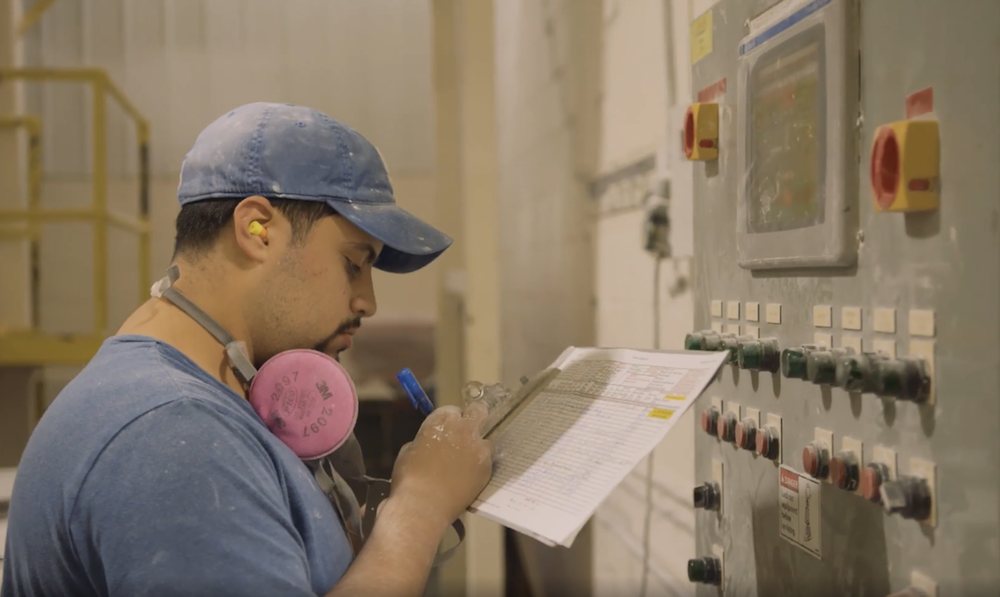5 Must-Haves to Look For in a Toll Processor

All too often, the customer search for a toll processing service begins and ends with an equipment search, based on a single service needed, whether it’s milling, blending, drying, or extruding.
But that approach doesn’t do justice to your business or its future potential.
When you start your search for a toll processor, you’re looking for more than a specific type of equipment. You’re looking for a dedicated team of problem-solvers you can trust.
Your business’s challenges tomorrow may be vastly different from today — but choosing the right processor today means you’ll already have the right problem-solving team in place tomorrow.
Here are five key characteristics to consider when choosing a toll processor.
1. Capabilities to meet your needs today — and tomorrow
Your immediate milling, blending, or extruding needs may drive your search for a toll processor right now, but it’s critical that you look beyond today and consider your future needs. How well-prepared is your toll processor to help you achieve tomorrow’s goals? A full range of material processing capabilities can include:
- Mechanical milling
- Jet milling
- Drying
- Blending
- Extrusion
- Process trials
- In-house testing and analysis
- Material handling and repacking
- Warehousing and logistics
- And more
You may only need one service on that list today, but it’s reassuring to know that in the weeks, months, or years ahead, you can look to your toll processing partner for expert advice in any moment of need. When a supply chain hiccup leaves you with off-spec raw material, or you don’t have the right equipment size to handle bulk packaging, a trusted toll processor can help you prevent bottlenecks and waste, reduce costs, and keep operations running smoothly.
2. Scientific and technical know-how to solve tough challenges
Plenty of toll processing jobs are simple, involving materials and particle size or blend homogeneity goals that are predictable and easy to achieve running on equipment that can be found just about anywhere.
But when you know your toll processor can go above and beyond standard, run-of-the-mill orders to solve tough challenges when they arise, that frees your teams to explore and innovate in product development.
So it’s worth it to ask your point of contact about technical teams. Look for material scientists and engineers on staff — people with R&D experience and the process knowledge to run trials, scale up from trial to full-scale production, and troubleshoot problematic materials or complex process requirements.
If you’re not the technical expert but your team relies on you to find a technical solution, your toll processor’s customer care team should be ready and able to explain the science, put you in touch with the right experts, and work closely with your technical team.
3. Industry-specific expertise and certifications
Certifications offer proof of operational transparency, compliance, and quality control. Different certifications may be required for materials and products in a variety of industries; cGMP, for example, is critical for food and pharmaceutical manufacturers.
So it’s important to know that your toll processor’s facilities meet requirements, their operators are properly trained to follow procedures carefully, and that they correctly and consistently document as required for regulatory compliance.
4. Industry experience and the leadership it brings
Sometimes a manufacturer just can’t justify the cost of a new equipment purchase, no matter how urgently it’s needed — and that’s when a long-term partnership can really pay off. Do you know how long your toll processor has been in business, and whether they’re in a strong financial position to support your work even when capital investment may be needed?
For example, over more than two decades in toll processing, CPS has grown and made strategic decisions for our customers’ benefit. We have multiple locations with specialized services, and over the years we’ve increased our ability to receive from multiple transport modes and process, package, warehouse, and ship materials. We continue to add state-of-the-art equipment to meet customer needs, and we’ve grown our technical teams with even deeper material science specializations.
A strong toll processing partner may help your company get access to equipment technologies that would otherwise be out of reach, including leadership who are always in search of the right technology to add to their service portfolio. They listen to their customers and invest in the advances that are needed to drive innovation and get your products to market.
5. Professional customer care, contracts, and communication
When you find a toll processor who has the equipment and technical expertise to deliver the right set of services at the pace you need, that’s still no guarantee your project will be 100% successful. Contractual questions, concerns, or lack of clarity can bring your project to a grinding halt.
From your customer service point of contact, you should expect timely, clear responses to all your questions. Your toll processor’s legal team should work collaboratively with you to ensure that all contractual agreements and obligations are clearly spelled out. The contract and legal side of the project should engender even greater trust and confidence in your choice.
The best advanced equipment and a deep bench of material science expertise are fundamental, but there is so much more to a toll processing partnership. Every interaction, from the first call to the final invoice, should enhance your sense of trust and reinforce your confidence in your problem-solving team of professionals.
Toll processing can be complicated. CPS is here to help simplify the challenge. You can start learning more right away by getting to know a few of the most important terms in toll processing. Just download our Particle Technology Glossary, spend a few minutes reading through it, and if you still have questions, reach out to us here.


.png?width=100&height=110&name=CPS-Logo-rgb-no-callout%20(1).png)
